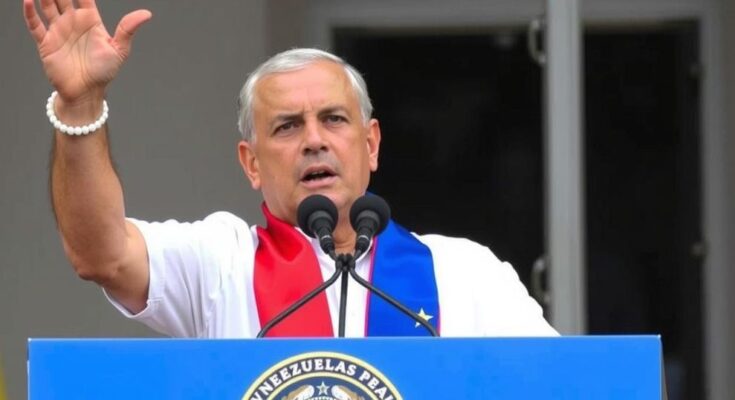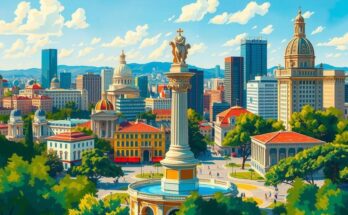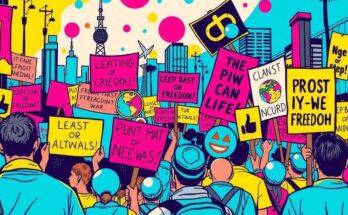Venezuelan President Nicolás Maduro is set to be sworn in again, extending his rule despite allegations of electoral fraud favoring his opponent, Edmundo González. Protests and international condemnation follow the government’s repressive tactics against dissenters, including the detainment of opposition leader María Corina Machado.
Venezuelan President Nicolás Maduro is set to extend his rule, remaining in power until 2031, as he prepares for his inauguration on Friday. This decision follows substantial allegations of electoral fraud claiming that his opponent, Edmundo González, actually secured a majority in the latest election. Protests erupted in Caracas as citizens rallied behind María Corina Machado, an opposition leader barred from political office, who was briefly detained by security forces while urging the recognition of González’s victory.
The Venezuelan government has faced widespread criticism for its oppressive tactics against dissenters. International leaders, including President-elect Donald Trump, expressed their support for the opposition and condemned the government’s treatment of Machado and demonstrators. Despite assurances from figures in Maduro’s administration regarding the legitimacy of his electoral victory, independent observers, such as the U.S.-based Carter Center, have verified claims that González received significantly more votes than Maduro, raising further doubts about the election’s integrity.
The turmoil surrounding Maduro’s inauguration is compounded by a history of election-related violence, including the arrest of over 2,000 protesters. These developments have prompted national and global calls for accountability and an end to the state-sponsored repression sweeping Venezuela. The absence of international observers or leaders at the upcoming inauguration points to the increasing isolation of Maduro’s regime as it grapples with a legitimacy crisis fueled by its disregard for democratic norms and human rights.
In summary, the ongoing political crisis in Venezuela highlights the severe challenges faced by opposition figures and the citizens yearning for democratic governance. The allegations of electoral fraud, supported by independent audits, coupled with the oppressive reality of life under Maduro’s regime, underscore the urgent need for international attention and assistance in restoring democracy in Venezuela.
The political landscape in Venezuela has been characterized by increasing authoritarianism under Nicolás Maduro, who continues to face accusations of election fraud and human rights violations. His 2019 inauguration was met with widespread international condemnation, and challenges to his rule have persisted, particularly from opposition figures such as María Corina Machado and Edmundo González. The country’s political strife has manifested in violent protests, government crackdowns, and a significant loss of life among demonstrators.
In conclusion, Nicolás Maduro’s impending re-inauguration amidst allegations of electoral fraud reflects the deep-seated political strife in Venezuela. The opposition’s calls for recognition of their victories and accusations of government repression underscore the challenges facing democracy in the nation. As protests continue, the international community’s response will be critical in determining the future of governance and human rights in Venezuela.
Original Source: abcnews.go.com




